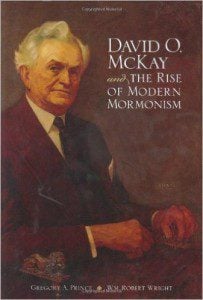
BYU’s Late Summer Honors offered a course recently called, “What Does it Mean to be Human? A Scientific and Spiritual Journey into Human Origins.” I was invited to take a 3-hr class period to talk about what Genesis has to say about evolution and the place of humanity in creation. I’ve presented much of what I said before, in other venues, but virtually everything was new to these freshman honors students. By necessity, I tried to keep it simple and use some humor.
Eleven of twelve were science majors and familiar with evolution, but none had seen this kind of “professional” approach to scripture before. This is not surprising (since Mormons are not taught or modeled this kind of thing) but it is problematic (see at the very bottom). I plugged BYU’s ANES Major and minor, which does model this approach.
Here’s a long outline, with links. Bibliography link here and at the bottom.
Evolution and Humanity: “Reading” Genesis like an Ancient Israelite
- Introduction
- Who I am and why I’m qualified on this topic. (For sake of time, I did not tell my own story of how studying scripture more closely led me away from an anti-evolution position.)
- Why quotes around “reading” in the title?
- Israelites were oral, not literate.
- What is implied by “like an ancient Israelite”?
- How we read and how they understood are probably quite different. We suppose our worldview is “natural” and shared by people throughout history, but this isn’t the case at all.
- Why is Genesis important to Mormons?
- Echoed in Moses, Abraham, Temple, etc.
- No time to cover relevant questions out of the Book of Mormon, D&C, or Pearl of Great Price, but I address it somewhat at the Joseph Smith Papers Conference (and will again, TBD).
- Because of time constraints, I had to lay some groundwork, then jump to conclusions, skipping over the work in between. So we need to do some 2+2=4, skip the calculus, but then show the conclusions of the calculus. So if it seems like there’s a gap between points A and C, please understand that this is my area of training and expertise, ask me questions, and trust me that B is solid.
- Lastly in our intro, let’s note that D&C 101:32-33 implies that how the earth was made has not yet been revealed.
- Framing of Science vs. Religion
- In the late 1800s, Draper and White each published polemical books popularizing the “warfare” or “conflict” model of science and religion. Watch this short clip
- Widely accepted in popular culture, the “conflict” model is flatly rejected by historians. Note the frustrated subtitle of this new book, The Warfare between Science and Religion: The Idea That Wouldn’t Die. (A very good volume.)
- This is a very accessible source I recommend.
- LDS History
- Opposition to evolution stems from how one interprets and understands scripture.
- There is a spectrum of LDS interpretations of Genesis, by three Presidents of the Church.
- At one far end, Brigham Young: Genesis is “baby stories,” not revelation, not facts.
- At the far other end, Joseph Fielding Smith: Genesis is scripture, and that means it must be scientific and factual. Smith committed to young-earth creationism throughout his life. (See here and here.)
- In the middle, David O. McKay: Genesis is scripture, but that doesn’t entail what Joseph Fielding Smith thinks. (See here and here.)
- No one has claimed revelation for their views on Genesis and evolution, they just have different interpretations of the relevant scriptures, stemming from different, unstated interpretive assumptions.
- The one exception is Elder Packer, who listed personal revelation as his sixth reason for rejecting evolution; however, he said, “I have asked, but not how man was created; I have asked if the scriptures are true.” He extrapolated from his positive response that if scripture is true, evolution cannot be. I agree with the answer, “yes, the scriptures are true” but disagree with his interpretation of what that means, which gets us right back into the question, how do we interpret scripture?
- Groundwork and Interpretation
- I used this Dilbert cartoon to illustrate common (but incorrectunderstandings of what “literal” means and when you interpret, i.e. “literal is the face-value ‘obvious’ meaning, and you only engage in interpretation when you want to avoid what it ‘obviously’ means.”
- In reality, interpretation, or the assignment of meaning, is happening all the time, consciously or unconsciously, whenever you read.
- Interpretation is both 1) unavoidable and 2) contingent on our individual knowledge and assumptions.
- I reused several slides from a related paper to illustrate that since human assumptions and knowledge are just as involved in interpreting scripture as they are in interpreting nature/science, the rhetorical contrast between “the theories of men” and “the word of God” is not very strong. That is, interpretation of both nature and scripture is filtered through human minds; for example, Joseph Smith received repeated verbal inspiration in D&C 130:14-16, and then explicitly had to interpret it.
- I may also have pointed out that if you accept the earth as a globe rotating around the sun, you’ve rejected clear scriptural teachings in favor of human reasoning and science. (A point I made at the FAIR conference.)
- President Hugh B. Brown quoting Elder Anthony R. Ivins, “It is our misinterpretation of the word of the Lord that leads us into trouble.” From “What is man and what may he become” in The Instructor, June 1958, 174. (Audio, PDF)
- What does “Literal” mean?
- “When someone insists that Genesis 1 should be interpreted literally, it is often an expression of their conviction that the interpreter rather than the author has initiated another level of meaning.” Walton, Lost World of Genesis One
- But “literal” as commonly used doesn’t reflect its actual meaning.
- When Augustine wrote his multi-volume Literal Meaning of Genesis, he used the term deliberately and clearly. “To distinguish his approach… from highly allegorical or moral readings of Genesis that were common during this period, Augustine sought, in his literal meaning, to establish the sense intended by the author.” Peter Harrison, in this volume.
- Indeed, numerous Protestant and Catholic authors, including Pope Pius XII and the Catechism of the Catholic Church define “literal interpretation” as “the sense intended by the author.”
- A “literal” reading, then, is a deeply contextual reading requiring knowledge of history, languages, etc. A literal reading requires certain kinds of expertise.
- here I cited Elder Ballard on expertise, where he singles out ancient history and biblical studies as having valuable expertise and knowledge which the Apostolic office does not automatically bestow on its recipients.)
- Is it likely that reading Genesis in translation, without any contextual knowledge, with a radically different worldview and cultural lens, will accurately capture what it meant to ancient Israelites? No, it’s not.
- “We ofttimes read our Bible as though its peoples were English or American and interpret their sayings in terms of our own background and psychology. But the Bible is actually a Near Eastern book. It was written centuries ago by Near Eastern people and primarily for Near Eastern people.” (Terminology modified.) Sidney Sperry, “Hebrew Manners and Customs” Ensign May 1972.
- “To read the Bible fairly, it must be read as President Brigham Young suggested: ‘Do you read the scriptures, my brethren and sisters, as though you were writing them a thousand, two thousand, or five thousand years ago? Do you read them as though you stood in the place of the men who wrote them?’ This is our guide. The scriptures must be read intelligently.”- Elder Widtsoe, published in Evidences and Reconciliations, but first in The Improvement Era, 43:6 (June 1940), 353.
- There are different kinds of interpretation, and our concern today is on the literal (and therefore contextual) interpretation of Genesis. To do so, we need to talk about a few interpretive assumptions: Adaptation, Accommodation, Concordism, and Genre in Scripture.
- Adaptation is the idea that revelation often creatively adapts, updates, reinterprets, recontextualizes, or integrates elements of the prophet’s culture and environment, giving these elements new meaning and significance in the process. God rarely seems to create meaning ex nihilo. There are a ton of examples in scripture and history. To choose a few,
- Abraham saw circumcision in Egypt before it was adapted and transformed as the sign of the covenant in Genesis 14.
- Mist surely refracted light into rainbows before it was transformed into the sign of the covenant in Genesis 9.
- The Israelite temple adapts from Egyptian, Canaanite, and Mesopotamian architecture, ritual, implements, covenantal structures, language, etc.
- The Sacrament is an adaptation and transformation of the Passover ritual.
- In the D&C, “early Latter-day Saint converts were heirs to an ecclesiastical language inherited from the Christian tradition that the revelations routinely assumed, appealed to, and utilized to both reinforce old ideas and communicate new ones.” Source.
- Genesis adapts both Israelite and non-Israelite creation ideas for a particular purpose.
- Accommodation is the idea that “divine revelation is adjusted to the disparate intellectual and spiritual level of humanity at different times in history.” – Benin, The Footprints of God.
- God adopts “the human audience’s finite and fallen perspective. Its underlying conceptual assumption is that in many cases God does not correct our mistaken human viewpoints but merely assumes them in order to communicate with us.” Sparks, God’s Word in Human Words.
- That is, even when directly revealed from God, revelation may not be eternally strictly “correct” in a scientific, factual, doctrinal (remember “line-upon-line”?), moral, or ethical way. Accommodative revelation is how Jesus explains the divine tolerance of divorce in the Torah, even though God doesn’t actually want divorce (Matthew 19:8.)
- Accommodation is found in the Old and New Testaments, D&C, Book of Mormon, throughout Jewish and Christian history, and also in the mouths of Joseph Smith, Brigham Young, and others. Compare these.
- “The Torah speaks in human language” (Talmud)
- “scripture speaks according to the notions of the people” (Aquinas, Summa)
- God “speaketh unto men according to their language, unto their understanding” (2 Nephi 31:3)
- “these commandments are of me, and were given unto my servants in their weakness, after the manner of their language, that they might come to understanding.”(D&C 1:24)
- I’ve talked at length about accommodation in a New Testament context here, and in a Genesis context here.
- Accommodation means that we shouldn’t expect an ancient creation text like Genesis to reflect modern scientific or doctrinal truths, even in poetic or veiled language. God adopted ancient cosmology to answer important questions relevant to the Israelites’ needs at the time (more on this below.)
- This means, to return to a previous point, that scripture comes to us already incorporated with the philosophies and assumptions of ancient people, not as a purely divine and coherent encyclopedia of facts and ethics.
- Concordism is the idea that scripture and science must be in concord with each other, because God inherently speaks in scientific/historical/factual terms. This is a very common assumption, one that drives creationism and opposition to evolution. It also happens to be an assumption that is wrong. It is countered by accommodation, for example. I have a 45-minute conference presentation on concordism, where it came from, and why many believing scholars reject it today.
- To introduce this idea, I showed students the creation sequence from Noah, written and produced by a Jewish agnostic/atheist. I asked them how the clip showed that he had something in common with Christian fundamentalist Ken Ham, who runs the Creation Museum and Ark Adventure. The answer is concordism, as Noah mashes up modern cosmological/evolutionary imagery with ancient scriptural language. The result of seeing that kind of thing is that you return to Genesis with a visual reaffirmation that Genesis is really talking about solar systems and evolution when it’s not doing so at all.
“While art and artists are often credited with making historical, and particularly religious, ideas come alive and plainer to understand, an inherent problem enters when the language of religious art becomes translated into the language of history by its viewer. What we see becomes what we believe, and often, therefore, what we think we know about facts and details of history. And when we learn religious facts and history (from scholars or historians) that contradict what we think we know (through artistic renderings), a state of cognitive dissonance—and in the case of religious art, spiritual dissonance—can often be the result.”
(See here at the bottom for source and discussion in terms of Joseph Smith’s seerstone and Book of Mormon translation.)
- Concordism is a scientific wresting of scripture and scientific interpretations of Genesis (whether young-earth, old-earth, or otherwise) are not literal interpretations.
- I then showed a slide of how ancient Israelites conceived of the cosmos, what Genesis and the rest of the Hebrew Bible envision, very similar to their ancient Near Eastern neighbors. This is the “inverse-snow-globe” model:a flat earth protected by a solid dome from the cosmic waters which surround it above and below. This is well-established by, e.g. Evangelical scholars, who certainly don’t hate the Bible or want to destroy it. God accommodated this cosmology in Genesis, as what was being taught was not cosmological/physical in nature.
- To introduce this idea, I showed students the creation sequence from Noah, written and produced by a Jewish agnostic/atheist. I asked them how the clip showed that he had something in common with Christian fundamentalist Ken Ham, who runs the Creation Museum and Ark Adventure. The answer is concordism, as Noah mashes up modern cosmological/evolutionary imagery with ancient scriptural language. The result of seeing that kind of thing is that you return to Genesis with a visual reaffirmation that Genesis is really talking about solar systems and evolution when it’s not doing so at all.
- The last assumption was about the presence of different genres in scripture, and how the “literal/figurative” interpretive dichotomy misleads us. I’ll point you to my discussions of this elsewhere: LDS Perspectives podcast, part 4 of my Sperry Symposium paper, this post, this post, this post, this post on Jonah… and I’ll stop there. A literal interpretation requires knowledge of genre and context.
- Adaptation is the idea that revelation often creatively adapts, updates, reinterprets, recontextualizes, or integrates elements of the prophet’s culture and environment, giving these elements new meaning and significance in the process. God rarely seems to create meaning ex nihilo. There are a ton of examples in scripture and history. To choose a few,
- Ancient Genesis, Evolution, and Humanity
- Finally, then, what did Genesis mean to the Israelites?
- I opened by asking what Batman reboots and Genesis had in common. The answer was “origin stories”! We think that “Who We Are” is dependent in some sense on “where” we come from, which is why Batman reboots ALWAYS have to show/tell about the tragic origins of Batman, even though we all know it. Similarly, as LDS Sidney Sperry wrote,
the writer of Genesis (in its present form) is more interested in showing to Israel who its great ancestors were than to tell about the origin of life and its institutions. This is readily seen in the fact that the origins of life and its institutions are briefly and concisely handled in the first [three] chapters, while thirty-nine chapters are required to tell about Abraham, the father of the faithful, and his immediate family.
- As with Batman, what we’re concerned with is not so much *physical* origins as much as social, psychological origins. Genesis is not recounting a natural history of the earth’s physical creation for a modern reader with assumptions about the primacy of material (i.e. concordism). The material aspects of creation were not what mattered to the Israelites, anymore than the manufacturing process of Batman’s toys matters to us.
“The position of the creation story at the beginning of our Bible has often led to misunderstanding, as though the ‘doctrine’ of creation were a central subject of Old Testament faith. That is not the case.”- von Rad, Genesis, 45.
- I opened by asking what Batman reboots and Genesis had in common. The answer was “origin stories”! We think that “Who We Are” is dependent in some sense on “where” we come from, which is why Batman reboots ALWAYS have to show/tell about the tragic origins of Batman, even though we all know it. Similarly, as LDS Sidney Sperry wrote,
- A toddler given a birthday present often ignores the actual present to focus on the box or wrapping paper. Similarly, what WE seize on as significant in Genesis is not what was significant to the Israelites. (Here is where I had to skip over a lot and offer several points to just assume for the rest of the lecture.)
- Genesis 1 and 2-3 were separate Israelite creation stories from different time periods.
- Genesis 1 was given its form as we know it today in Babylon, by Israelite priests during the Exile. It reflects priestly concerns, uses priestly terminology, and embodies priestly concepts. (On this and other points about Genesis 1, see my podcast here.)
- They adapted from both Israelite and Babylonian material to produce Genesis 1 in support of Israelite doctrines of monotheism and the elevated place of humanity in creation, over against Babylonian ideas and “doctrine”.
- Q: Are the days of creation about the age of the earth?
- Not at all, and it’s concordist assumptions that drive incorrect interpretations like the day-age reading, where “day” just means “a really long time.” See my draft paper from the Mormon History Association here.
- The priestly creation account of Genesis 1 uses a 7-day structure to emphasize both 1) sacred time (the Sabbath) since sacred space, the Israelite temple, has been destroyed and 2) the construction of God’s cosmic temple. These may be actual 24-hr days, but that doesn’t mean they are real, historical days. On this point, see my old post here and the clarifications in the comments. On God’s cosmic temple, see my review of Walton here.
- Is creation even physical/material in Genesis?
- Maybe. But I think there is a good argument to be made (following Walton) that for ancient Israelites, existence was not defined materially, but functionally. That is, to exist meant to have a name and a function in an ordered system. You could touch something that didn’t exist.
- At the turn of the century, just as the similarities between humanoid fossils and humans suggested a close relationship, so too the similarities between newly discovered non-biblical and biblical creation stories strongly suggested a relationship between them.
- Here, I introduced the Babylonian Enuma Elish, and pointed out several ways Genesis seemed to be implicitly responding to it and other ancient Near Eastern creation ideas. (I used the Star War prequels and the Phantom Edit to convey this point.) This includes
- circumlocutions to avoid the names of other deities like sun (“greater light”), moon (“lesser light”), and sea (singular.); See post here.
- paralleling the set-up of battle in Enuma Eliš with the presence of a deity, the Deep/waters, and wind/spirit, but having the God of Israel create only by speaking, not by battle. (This is particularly interesting, since elsewhere in the Hebrew Bible, God is indeed portrayed as doing battle with the primordial waters before creation. See the same post here )
- How Genesis portrays the God of Israel as superior to the polytheism of Babylon. This was a serious and devastating question since, theologically, Marduk had defeated Yahweh/Jehovah and destroyed his temple. Polytheism made a lot of sense to ancient peoples, see my post here. This, in fact, may have been the question of Genesis, which deity or deities are really in control of the universe.
- We briefly compared the role of humans in Akkadian thought (as slaves to a sub-class of gods) with that of humans in Genesis, where creation is repeatedly said to be good, human creation is VERY good, and all humanity is said to be in the image of God, a description reserved for royalty elsewhere in the ancient Near East.
- How “Adam” and “Eve” are mistranslated in the KJV, and ought to be understood as the more typological “Human” and “Life.” See my chapter in this book.
- We touched on a few other points briefly, including whether Lehi’s discussion of “all things being a compound in one” reflected priestly ideas about creation through separation/definition/naming. (I think we misuse that passage frequently. “Opposition in all things” doesn’t mean “resistance, pushback” but “opposite, counterpart” the same way light and darkness are distinguished from each other in Genesis through being named. That is, I translate Genesis 1:4-5 as “God saw that the light was good, and established a distinction between the light and the darkness by designating the light as Day and the darkness as Night.”
- Here, I introduced the Babylonian Enuma Elish, and pointed out several ways Genesis seemed to be implicitly responding to it and other ancient Near Eastern creation ideas. (I used the Star War prequels and the Phantom Edit to convey this point.) This includes
- Finally, then, what did Genesis mean to the Israelites?
- I had several conclusions.
- First, it should be clear that Genesis isn’t addressing modern concerns about science, evolution, the age of the earth, etc.
“Genesis 1 was not written to answer our curiosities about how the universe came to be. It was not written in code to show us that the Israelites had a basic grasp of the Big Bang, expanding universe, and Einstein’s theory of relativity.”- Peter Enns
- Second, Genesis said some extremely important things to the Israelites in Babylon, who were surrounded by polytheists and having a theological crisis because they had “lost” to the Babylonians and the Jerusalem temple had been destroyed. If we think of Genesis in conversation with Enuma Elish, it might go like this.
“You [Babylonian Enuma Eliš] say the universe, and humankind’s place in it, is the result of a struggle between immoral and amoral deities the end-result of which is not favorable to humankind at all; I [Genesis] say that a single all-powerful God created a universe that is good and reflects well on its Creator, who made it as a habitat for humankind, the object of his blessing.” – Source.
- Third, there remains a lot of thinking and work to be done to help LDS feel that evolution is less of a threat to their testimonies. Too much work in the science-and-religion-reconciliation business (esp. creationism/evolution) is done on the scientific side. This problem will not be solved by writing better essays on carbon-14 dating, dendrochronology, or whale flippers.
- Rather, the problem lies in our interpretive assumptions about what revelation is, what scripture says and means, how we should interpret and understand it. That is where the conflict truly lies, and that is where the discussion should be. What did Genesis mean to the Israelites, and how should we understand it in a way that is faithful to scripture?
- That’s not a discussion scientists are equipped for; contributing to this LDS conversation on the lay level will require gaining a little expertise in this area, reading this material, and “paying dues” as an active Latter-day Saint, in the words of LDS anthropologist Armand Mauss. To that end, I provided an annotated bibliography, much of which will be recognizable from my posts here, like this one.
- First, it should be clear that Genesis isn’t addressing modern concerns about science, evolution, the age of the earth, etc.
“What’s potentially damaging or challenging to faith depends entirely, I think, on one’s expectations, and not necessarily history. Any kind of experience can be shattering to faith if the expectation is such that one is not prepared for the experience…. the problem is the incongruity between the expectation and the reality.”
When people who have imbibed the “truth=simplicity” equation lose their testimonies and get flipped to the non-believing side, they often retain that equation. Through that distorting lens, more complex or nuanced arguments about history/scripture/prophets, even when made by professionals and experts, get labeled as “mental gymnastics” dodging “obvious” and “simple” truth. If, on the other hand, we showed people the actual process and work that goes into interpreting scripture and history especially when its messy, then they might be more prepared to handle messiness themselves. This would move them away from the very fragile “truth= simplicity” equation. It lets them learn to recognize when a bad argument or no argument at all is being made in scripture or history, and even make arguments themselves.
Elder Maxwell once said, “It never ceases to amaze me how gullible the Latter-day Saints can be. Our lack of doctrinal sophistication makes us an easy prey for such fads.”
As always, you can help me pay my tuition here, or you can support my work through buying the Amazon books I link to. You can also get updates by email whenever a post goes up (subscription box on the right). You can also follow Benjamin the Scribe on Facebook.




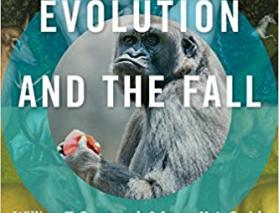
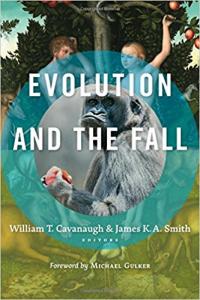 First,
First, 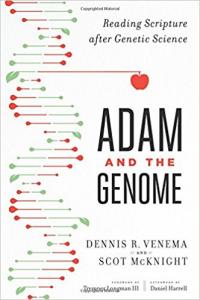 Second,
Second, 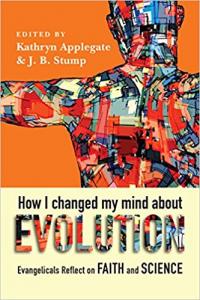


 People are multi-faceted and complex. It’s very easy to develop an attitude of putting either a halo or a black hat on someone from one incident, one aspect of them, particularly when it’s a historical figure. It can be hard to get a full picture of someone. Elder Maxwell once said that the tragedy of Elder McConkie was that he had the most fantastic sense of humor, and no one in the Church knew it. (See my
People are multi-faceted and complex. It’s very easy to develop an attitude of putting either a halo or a black hat on someone from one incident, one aspect of them, particularly when it’s a historical figure. It can be hard to get a full picture of someone. Elder Maxwell once said that the tragedy of Elder McConkie was that he had the most fantastic sense of humor, and no one in the Church knew it. (See my 

